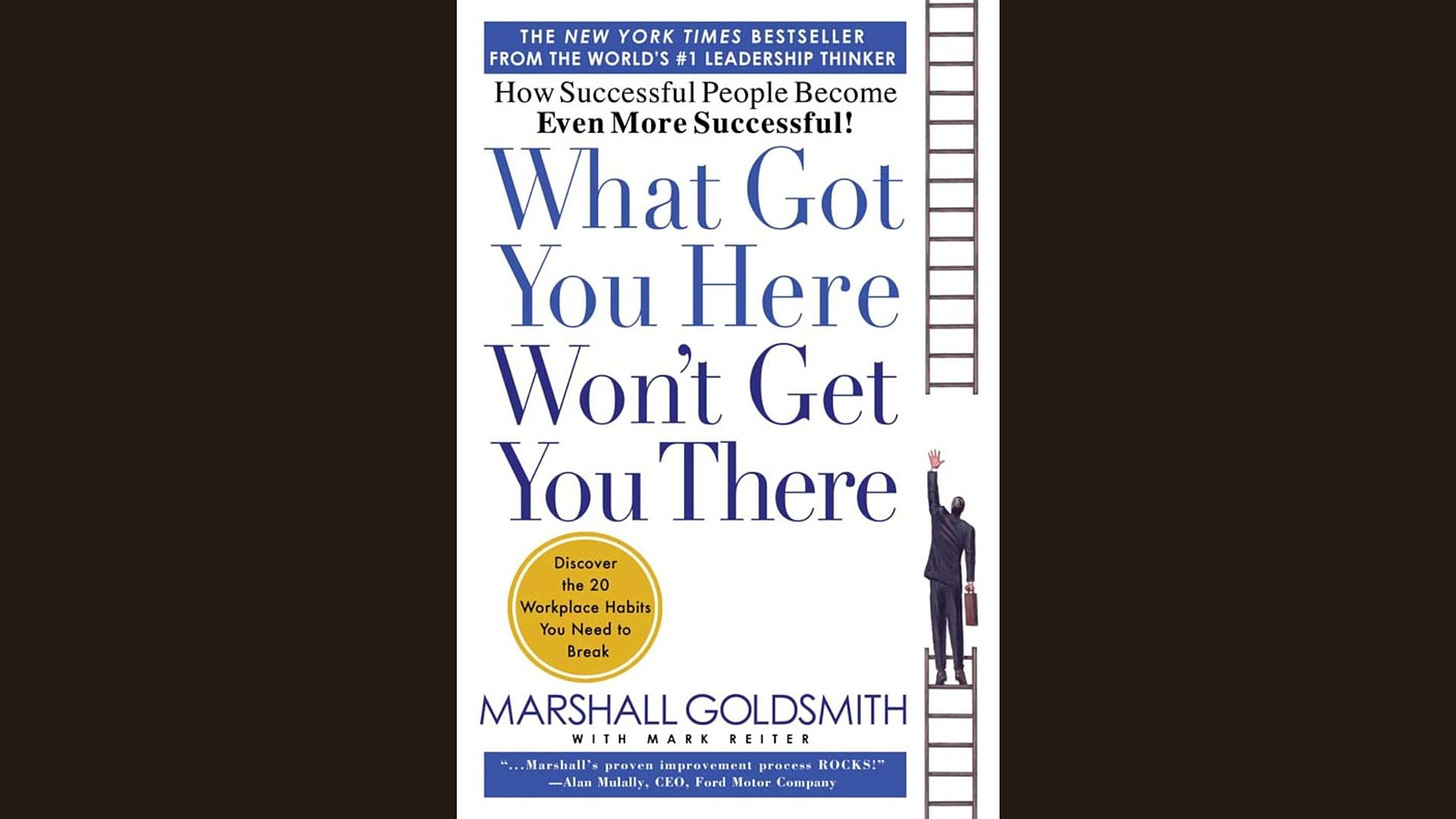Book Byte #321 "What Got You Here Won't Get You There" by Marshall Goldsmith
How Successful People Become Even More Successful
📣 Curious Quotes from the Author
“There is never anyone in the other boat.”
“we accept feedback that is consistent with our self-image and reject feedback that is inconsistent.”
“Everything gets better with one change.”
“how our previous success often prevents us from achieving more success”
“Try this: For one week treat every idea that comes your way from another person with complete neutrality. Think of yourself as a human Switzerland. Don’t take sides. Don’t express an opinion. Don’t judge the comment. If you find yourself constitutionally incapable of just saying “Thank you,” make it an innocuous, “Thanks, I hadn’t considered that.” Or, “Thanks. You’ve given me something to think about.”
“The more we are committed to believing that something is true, the less likely we are to believe that its opposite is true, even in the face of clear evidence that shows we are wrong.”
“One of the greatest mistakes of successful people is the assumption, “I behave this way, and I achieve results. Therefore, I must be achieving results because I behave this way.”
“If you press people to identify the motives behind their self-interest it usually boils down to four items: money, power, status, and popularity.”
📚 Cognition of the Book’s Big Idea
The majority of leaders are unaware of how their actions affect their colleagues and employees. However, increasing our awareness of our behavior might significantly affect our capacity to move up the success ladder. Two essential steps on the road to transformation are developing your listening skills and seeking out critical input from others. Here is one practical suggestion from the book that you can implement in your own life. Conduct stakeholder surveys at all organizational levels to find areas for improvement. Setting up 360-degree feedback and surveying your coworkers, managers, and staff members is the greatest method to accomplish this.
Ask a third party to conduct the interviews and ask people for their candid opinions while adhering to the four rules listed below to ensure confidentiality. First, let the past go. Second, be honest. 3. Don't be cynical; instead, be helpful and encouraging. Fourth, identify an area in which they may also improve. In this manner, the criticism will be directed toward enhancements rather than personal judgments.
Until Tomorrow,
Jason (Founder Club255)

